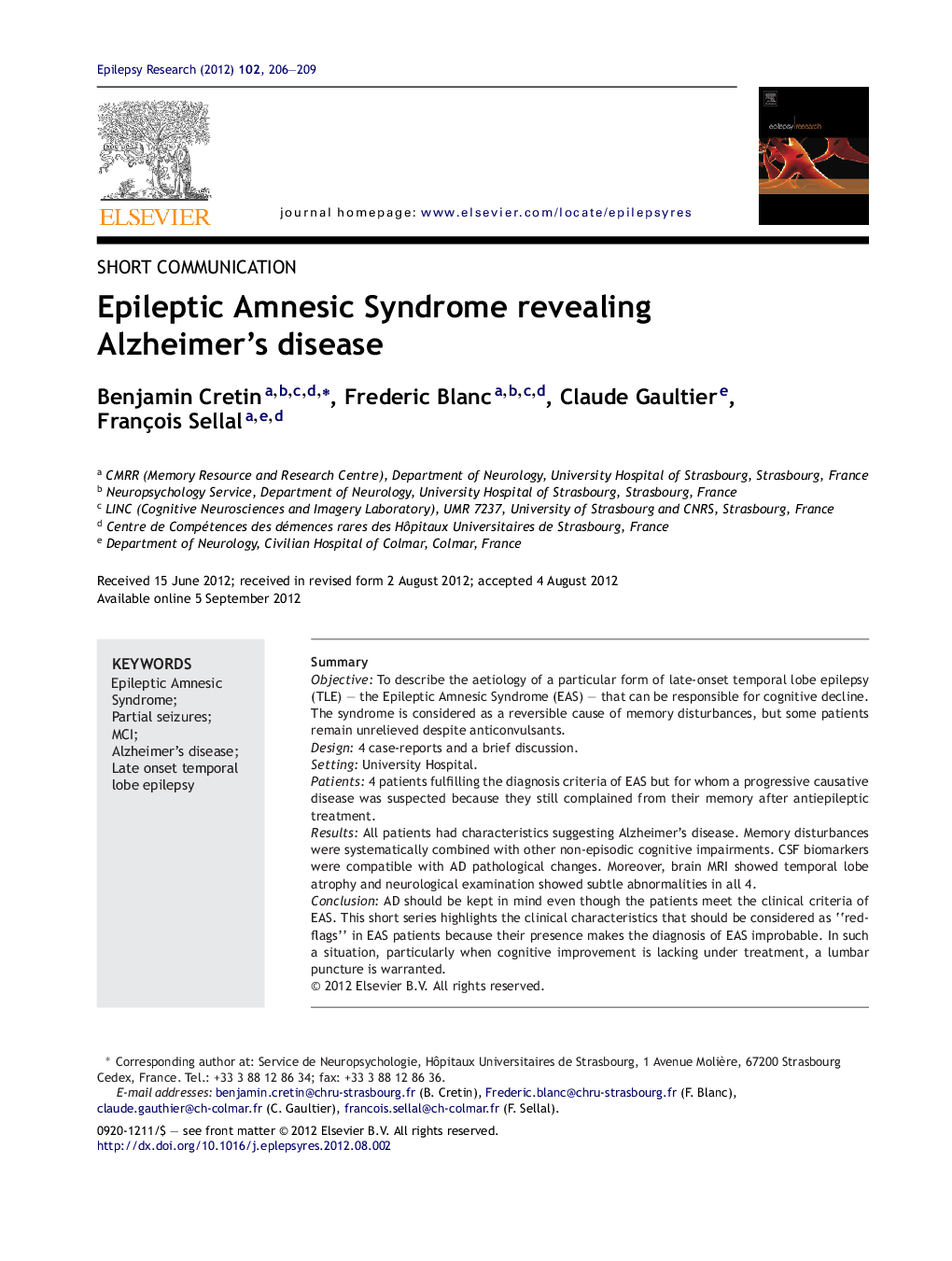| Article ID | Journal | Published Year | Pages | File Type |
|---|---|---|---|---|
| 3052268 | Epilepsy Research | 2012 | 4 Pages |
SummaryObjectiveTo describe the aetiology of a particular form of late-onset temporal lobe epilepsy (TLE) – the Epileptic Amnesic Syndrome (EAS) – that can be responsible for cognitive decline. The syndrome is considered as a reversible cause of memory disturbances, but some patients remain unrelieved despite anticonvulsants.Design4 case-reports and a brief discussion.SettingUniversity Hospital.Patients4 patients fulfilling the diagnosis criteria of EAS but for whom a progressive causative disease was suspected because they still complained from their memory after antiepileptic treatment.ResultsAll patients had characteristics suggesting Alzheimer's disease. Memory disturbances were systematically combined with other non-episodic cognitive impairments. CSF biomarkers were compatible with AD pathological changes. Moreover, brain MRI showed temporal lobe atrophy and neurological examination showed subtle abnormalities in all 4.ConclusionAD should be kept in mind even though the patients meet the clinical criteria of EAS. This short series highlights the clinical characteristics that should be considered as “red-flags” in EAS patients because their presence makes the diagnosis of EAS improbable. In such a situation, particularly when cognitive improvement is lacking under treatment, a lumbar puncture is warranted.
